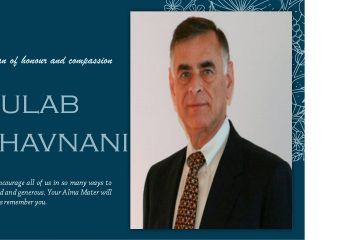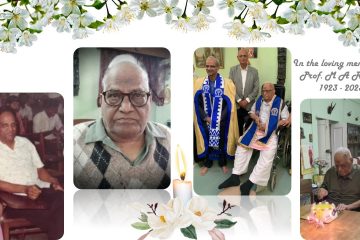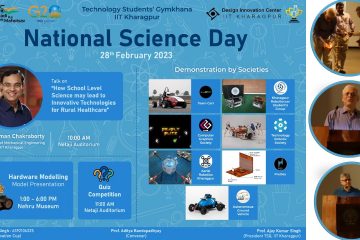 Emma Bancroft Toner, a fourth year UG student from the School of Environment, Enterprise and Development, University of Waterloo, was at IIT Kharagpur this summer to conduct her research on “Female Empowerment: Exploring the Influence of Living and Working in Informal Settlements”. Emma was here on a MITACS grant and her supervisor was Prof. Priyadarshi Patnaik of the Department of Humanities and Social Sciences. Emma immensely enjoyed her stay at IIT Kharagpur and was thankful that she had been given the opportunity to collect and work with primary data. Still the sprightly teenager, I found Emma at the Technology Guest House, her home for the two months of her stay, waiting for me with that ubiquitous nylon bag from Tech Market in hand – a favourite of hers. The market, as I found out, had also been one of her favourite haunts. The conversation quickly veered from her work at IIT Kharagpur to the sights and sounds she had enjoyed so much. Excerpts from the conversation:
Emma Bancroft Toner, a fourth year UG student from the School of Environment, Enterprise and Development, University of Waterloo, was at IIT Kharagpur this summer to conduct her research on “Female Empowerment: Exploring the Influence of Living and Working in Informal Settlements”. Emma was here on a MITACS grant and her supervisor was Prof. Priyadarshi Patnaik of the Department of Humanities and Social Sciences. Emma immensely enjoyed her stay at IIT Kharagpur and was thankful that she had been given the opportunity to collect and work with primary data. Still the sprightly teenager, I found Emma at the Technology Guest House, her home for the two months of her stay, waiting for me with that ubiquitous nylon bag from Tech Market in hand – a favourite of hers. The market, as I found out, had also been one of her favourite haunts. The conversation quickly veered from her work at IIT Kharagpur to the sights and sounds she had enjoyed so much. Excerpts from the conversation:
 What are ‘informal settlements’? And what are the challenges that women in them face?
What are ‘informal settlements’? And what are the challenges that women in them face?
Informal settlements could be any sort of home on government land or land not owned by the family living there. It could mean shacks or smaller homes. Both children and women have problems in the sense that they could be migrants, leaving behind social bonds and support. Such settlements can offer women a lot more social and economic opportunities but since they are poor, there are problems like lack of access to social services like police or health care, many of which could lead to more violence towards women and children. A lot of such issues are often exacerbated by the combination and intersection of displacement, poverty, lack of resources and services.
What are the areas you are looking at?
 At IIT Kharagpur, I looked at women who are from informal settlements but are also employed. I have been interviewing people from these communities and have been asking them about their home life, community life, their experiences of working, how employment has worsened or improved their lives. I interviewed sweepers in the halls and hostels, mess workers in hostels, helpers at the parlours, a cook or two in the hostels and security guards in the hostels.
At IIT Kharagpur, I looked at women who are from informal settlements but are also employed. I have been interviewing people from these communities and have been asking them about their home life, community life, their experiences of working, how employment has worsened or improved their lives. I interviewed sweepers in the halls and hostels, mess workers in hostels, helpers at the parlours, a cook or two in the hostels and security guards in the hostels.
However, I realized that people employed here are either contractual or permanent and paid differently. They also have different qualifications. Because of this, I now have had to reframe my focus. I now look at how contractual and permanent workers at public institutions are treated when they are from informal settlements.
How valuable has been this experience?
 I am in the last year of my program called “International Development” in the University of Waterloo, Canada. When I was first choosing my thesis, I didn’t think I could collect primary data and do primary research. But then I got the chance to come to India and decided to do a case study here. Most of my cohorts don’t get the opportunity to do research on their own. They are all using secondary data.
I am in the last year of my program called “International Development” in the University of Waterloo, Canada. When I was first choosing my thesis, I didn’t think I could collect primary data and do primary research. But then I got the chance to come to India and decided to do a case study here. Most of my cohorts don’t get the opportunity to do research on their own. They are all using secondary data.
Does your data lead you to any conclusions?
I still have to go through my data and compare it and change some things. But from what I have seen, I believe that overall a lot of things have improved for women who are employed – they do feel more empowered, have more skills, are exposed to new experiences, and their finances have improved. Some things are undoubtedly worse as they do not have enough time with their families and neither have the chance to do other things like following hobbies or travel. But things are better. There is one woman who told me that before employment she felt she was very dumb, but after coming to work she realized she is among the brightest in her team. What it has done to her sense of self-esteem is wonderful, and that is what I want to focus on.
 What has it been like to visit India?
What has it been like to visit India?
This is the first time I am visiting India, and travelling outside Canada alone. I didn’t know what to expect. Although I did take many classes on south Asian politics and religion, the experience has been completely different. I have loved every bit of my stay here. I wasn’t prepared for the heat but the culture, the people, the colours are wonderful. We don’t have such colours in clothes and homes and streets back home.
What is your feel of the IIT Kharagpur campus?
The campus is beautiful. I was so surprised because our campus is all concrete buildings. There are so many trees and such lushness all around. When I hadn’t started my work, I would go on long walks every day. There is so much to see. All the trees have signs and there are so many different kinds of them. Most of our campus has academics but here, at the Tech market, there are people from the community and even from outside. A lot of worlds meet at the Tech market. The whole vibe of the campus has been really nice. The park is beautiful… I see families here. This is more of a little town than a university or college.
 Besides, I have gained so much. My translator – Barsa Majumdar, who is a third year Dual Degree student in the Biotechnology Department – and I have become good friends. I was welcomed to their family home in Calcutta and she showed me around the city and even their ancestral village. I had both city and village experience. She introduced me to her friends as well. Her family was so welcoming. I also dressed in a sari and went to the famous Dakshineswar Temple in Kolkata.
Besides, I have gained so much. My translator – Barsa Majumdar, who is a third year Dual Degree student in the Biotechnology Department – and I have become good friends. I was welcomed to their family home in Calcutta and she showed me around the city and even their ancestral village. I had both city and village experience. She introduced me to her friends as well. Her family was so welcoming. I also dressed in a sari and went to the famous Dakshineswar Temple in Kolkata.
 I also gained a lot from the intellectually stimulating discussions I had with the faculty of the Department of Humanities and Social Sciences, particularly Prof. Archana Patnaik and Prof. Priyadarshi Patnaik, who was my supervisor.
I also gained a lot from the intellectually stimulating discussions I had with the faculty of the Department of Humanities and Social Sciences, particularly Prof. Archana Patnaik and Prof. Priyadarshi Patnaik, who was my supervisor.
Will you talk to your friends about the program?
Yes, I surely will. In fact, I have already been talking to my friends about the experience. I was really lucky to do this. I am the only one in my class to get the MITACS grant. There are around 25 of us doing the ‘ID’ program Around 15 have taken up placements in NGOs in Tanzania, Peru, Vietnam, Sri Lanka or some other country and 10 of us are working on our thesis. Most of us don’t get the opportunity to travel while working on a thesis. But I wanted to do both and through MITACS I have been able to do it.
Emma is currently working with an NGO in Odisha. She will then take a trip to north and western India before heading home sometime in August



